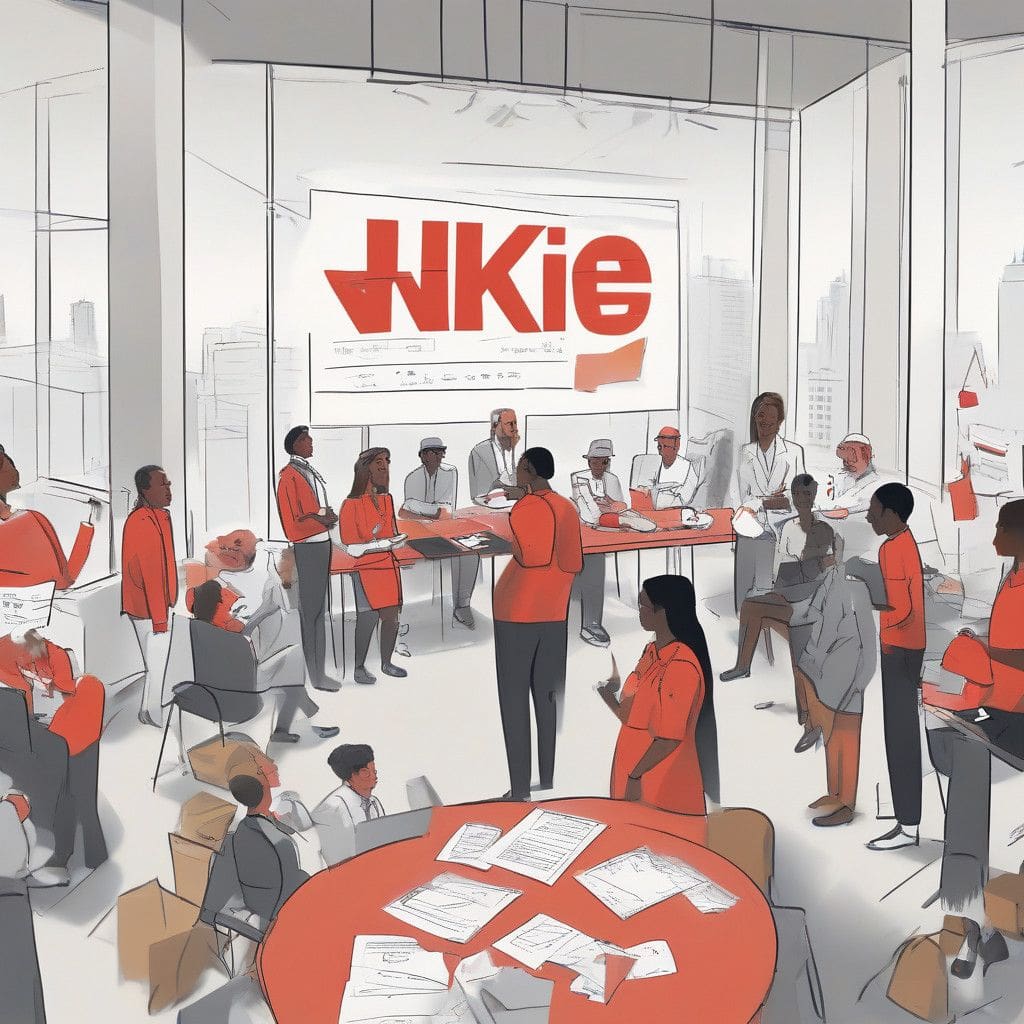In a significant development for the sportswear giant, Nike shareholders have voted against a proposal to engage in binding agreements with supply chain workers aimed at improving human rights conditions in high-risk countries. The outcome, announced at the company’s annual meeting, illustrates a pivotal moment for Nike amidst ongoing scrutiny over labor practices.
The proposal was championed by an investor group led by Domini Impact Equity Fund. This group, comprising over 60 investors, previously urged Nike to settle a claim of $2.2 million in unpaid wages tied to approximately 4,000 garment workers in Cambodia and Thailand. Such moves signify a growing concern among investors for ethical standards within the company’s supply chain, which often comes under fire for workers’ rights violations.
For the second consecutive year, a similar petition led by Tulipshare emphasized the necessity for Nike to enhance its supply chain management practices—specifically regarding forced labor and wage theft. Despite the mounting pressure from these investor groups, the proposals were overwhelmingly rejected again. Almost 80% of the investing community voted against such measures last year, and this year’s results bore comparable resistance.
Nike’s board advised shareholders to reject both proposals, reassuring the audience that the company has initiated “robust controls” to manage labor-related issues across its supply chain. Despite these claims, the results of the votes—though not legally binding—indicate a disconnect between corporate governance and shareholder concerns about ethical labor practices.
One of the critical aspects of Domini’s proposal was the call for Nike to publish a comprehensive report detailing the implications of adopting what is known as worker-driven social responsibility. This approach would involve forming binding agreements with workers that set safety standards and outline remedies for violations. Furthermore, Domini questioned Nike’s lack of participation in the Pakistan Accord, a health and safety pact that has garnered agreements from other industry leaders such as Adidas and Puma.
Adding to the intrigue around Nike’s governance, Norway’s wealth fund, ranked as the company’s ninth-largest shareholder, recently lent its support to the proposal while expressing its intention to vote against the exorbitant compensation awarded to Nike executives. Nike’s CEO, John Donahoe, has a compensation package of $29.2 million for the fiscal year 2024, a figure some shareholders deem excessive, especially amidst rising operational challenges.
Amidst these corporate governance challenges, analysts on Wall Street have begun speculating about potential leadership changes as Nike gears up for its investor day in November. The company recently announced a surprising projection of declining revenue for fiscal year 2025, pointing to deeper underlying issues.
Nike is facing significant hurdles, including a sluggish pace in product innovation and fierce competition from emerging brands such as Hoka, backed by Decker Outdoor, and Roger Federer’s On. Observers within the industry suggest that many of Nike’s current difficulties may be self-inflicted due to disruptive management practices and a lack of engaging marketing strategies.
In summary, the recent shareholder vote not only reflects the struggle Nike faces over ethical labor practices but also highlights a broader conversation around corporate responsibility and the expectation for companies to uphold human rights throughout their operations. As stakeholders push for accountability, Nike’s management will need to reconsider its approach not only to labor practices but also to transparency and compensation in order to regain investor trust and enhance its corporate image.












